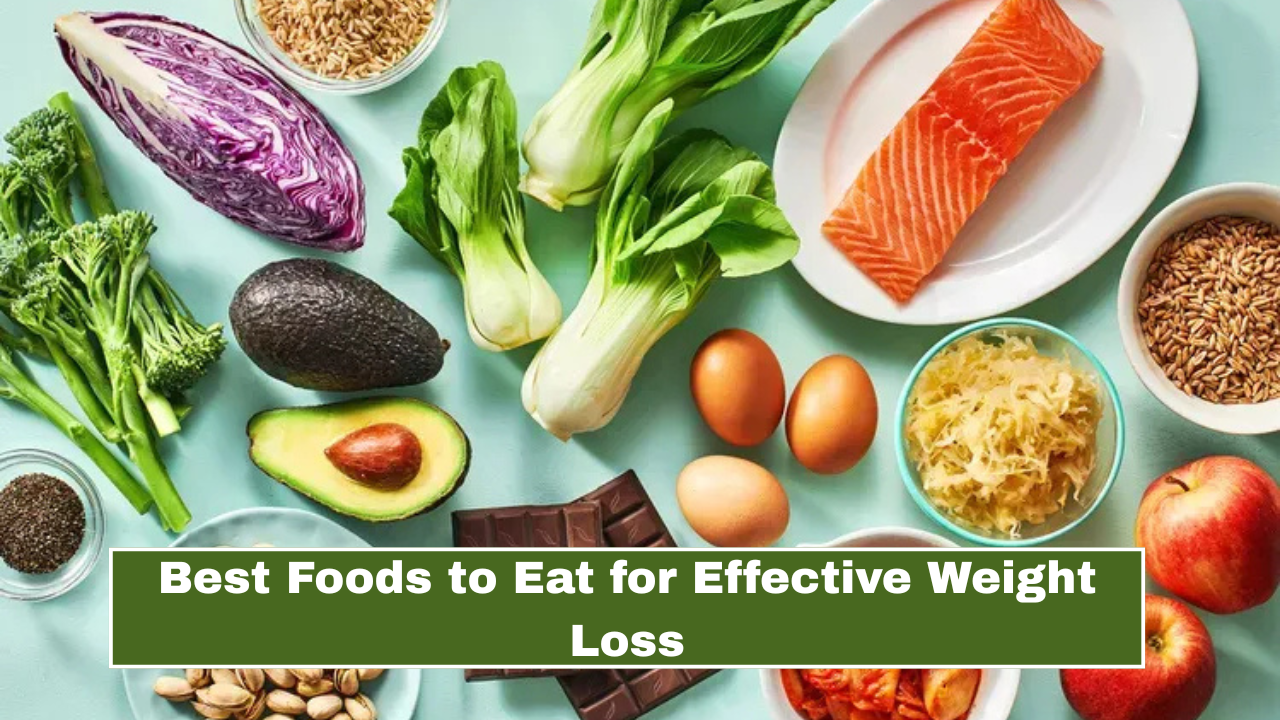One can never lose weight thanks to one particular food, but many other foods exist to assist you in general with your weight-loss program, along with a balanced, varied diet. Most of those so-called weight-loss foods are delicious, can work well for meals or snacks, and pack nutrients such as fiber, protein, and/or healthy fats that can keep their consumers full longer. If you are already wondering what food to eat in order to lose weight, consider yourself lucky!
Add at least 2 to 3 of the following foods to your meals daily to maximize your chances of weight loss.
1. Chia Seed
Fiber is a key to weight loss. It provides satiety, slows down digestion, and thus keeps one feeling full for a longer time. This assumes greater importance when caloric intake is sufficiently restricted, which is the favored method for trying to lose weight. The USDA estimates that 2 tablespoons of chia seeds will supply approximately 25 percent of one’s daily fiber requirement.
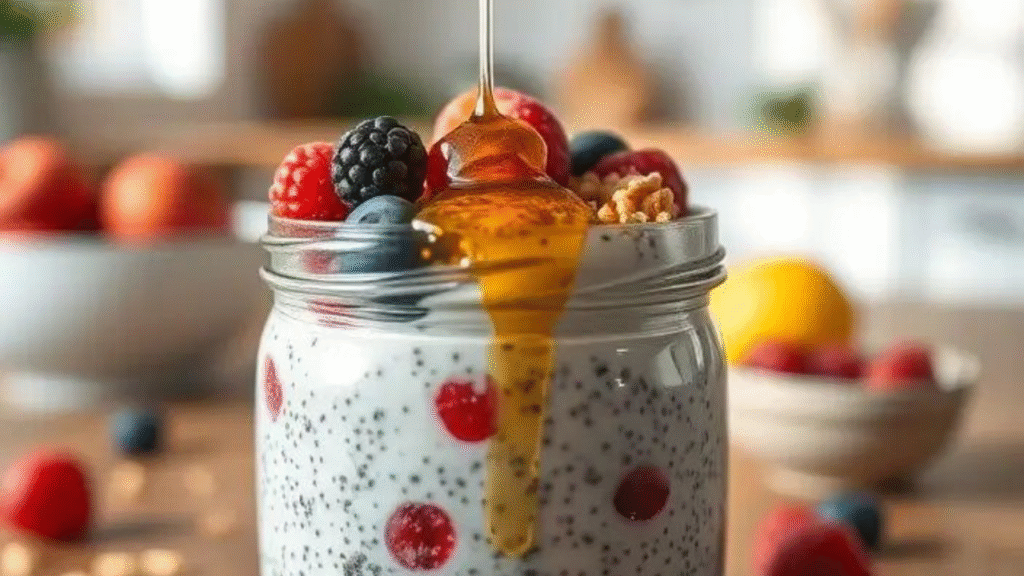
Chia seeds are easy to add to breakfast and snacks. Treat yourself to some chia pudding for breakfast, or top some English muffin with berries and chia berry jam-no added sugar! Extra bonus for the berries and whole-grain muffin, which adds even more fiber!
2. Fatty Fish
The Dietary Guidelines for Americans recommend at least 8 ounces a week of seafood rich in nutrients and concentrated with omega-3 fats. Seafood is also a good source of protein; thus, combining healthy fats and protein very effectively counters hunger and sustains a longer feeling of satiety.
Fresh fish looks great, though too costly for your pocket each week; instead, get frozen fish fillets or shrimp for a cheaper alternative.

Canned seafood is a marvelous way to prepare quick meals such as Easy Salmon Cakes or sardine toast.
3. Cruciferous Vegetable
Broccoli, cauliflower, Brussels sprouts, kales, and arugula march under the camouflage of cruciferous veggies. Cruciferous veggies are potent superfoods, with mounting evidence linking their consumption to both the mitigation of risk for cancer and inflammation while simultaneously aiding in active weight management.
With low calories and starch being counterproductive, cruciferous vegetables are the perfect non-starchy accomplice to any weight management meal plan.
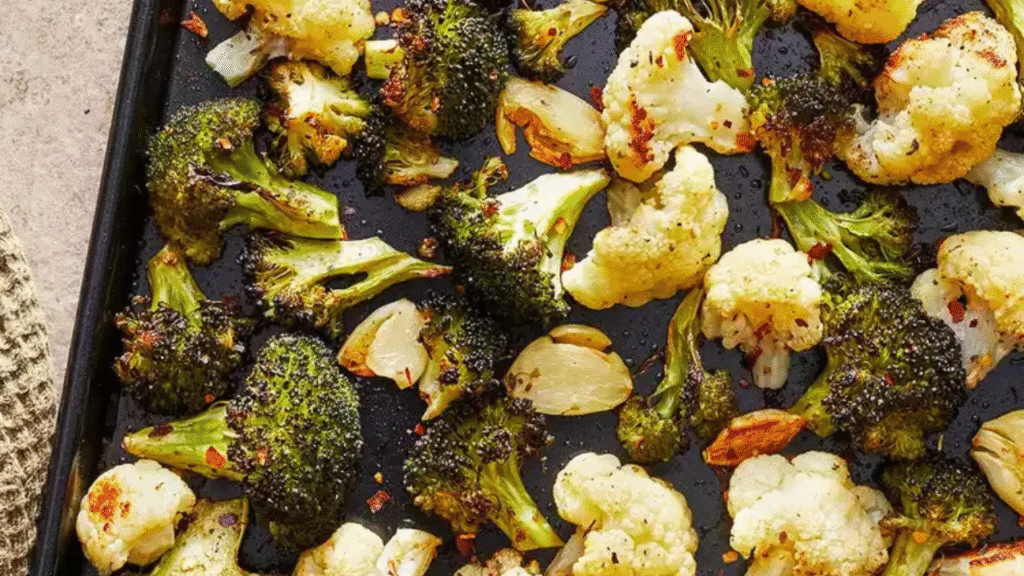
Try to buy these veggies at least twice weekly, adding them onto the bulkiest base in meal prep salads, or using them as low-carb substitutes to grains or in a low-carb smoothie.
4. Whole Grains
In efforts to lose weight, many people consider avoiding carbohydrates such as pasta, bread, and rice. However, this does not hold true for whole grains.
These include fiber, which keeps us satisfied, as well as vitamins, minerals, and phytonutrients. And carbohydrates are our body’s and brain’s preferred sources of energy.
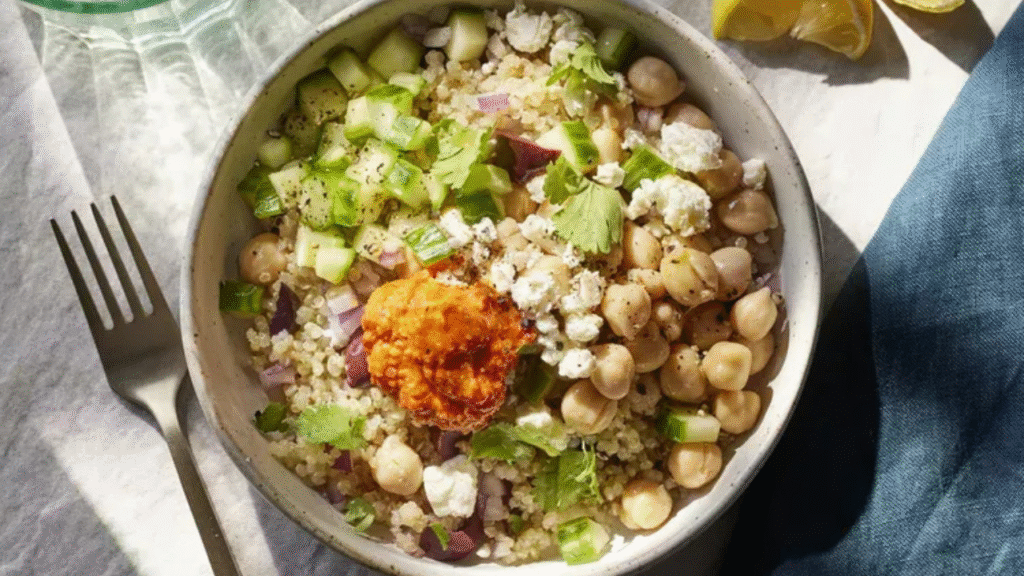
When eaten with protein and healthy fats, these foods can significantly help control cravings for refined carbohydrates and sugar.
5. Apples
Fruits, like vegetables, are alternatives that better fit in a healthy weight-loss strategy. For their satiating aspect-to-caloric value ratio due to high water and fiber contents, especially with skin consumption, apples rank quite high in the competition of weight loss.
They are especially good to keep around since they are inexpensive, last for weeks in the fridge, and are super-convenient to carry.

The best part is they can be a little less boring in their incorporation into meals: salads, whole-grain toast with peanut butter, or tossed in soups and smoothies.
6. Fermented Foods
Gut health is important. Good gut microbes can aid not just in immunity and digestion, but very likely in body composition as well, states a 2021 review in Nutrients.
Kefir, yogurt with live active cultures, sauerkraut (best homemade), kimchi, and tempeh are your sources of probiotics (“good bacteria”).

Try to have a couple servings of these probiotic-rich foods regularly, PLUS foods high in prebiotics-from bananas and asparagus to legumes and onions-that nourish your healthy gut bacteria.
7. Nuts
Nuts are probably the best-ever foods for a healthy weight-loss diet. The healthy fats, fibers, and proteins in nuts impart satiation and satisfaction. Fiber in nuts also feeds healthy gut bacteria to help them thrive.
Portion sizes are the key to eating nuts. Nuts with the shell are about 1/4 cup per serving, which is about 160-200 calories.

In 2014, a study published in Foods revealed that pistachios, almonds, peanuts, and walnuts could assist in battling inflammation enemy of obesity-while Brazil nuts might impact oxidative stress through their antioxidants.2 Most of the weight-loss-related nut studies have been focused on almonds, the nut par excellence for weight loss.
Cracking nuts became mindless, an antecedent of great portion control.
8. Eggs
Eggs are an almost perfect source of protein, especially for losing weight. A recent 2020 research article in the International Journal of Environmental Research and Public Health revealed that incorporating eggs in breakfast led to weight loss in subjects who were on reduced-calorie diets. This could be due to the very filling effects of egg protein and fat that keep a person full and satisfied even greater factor regarding weight loss-and keep proteins and fats needed for their maintenance.
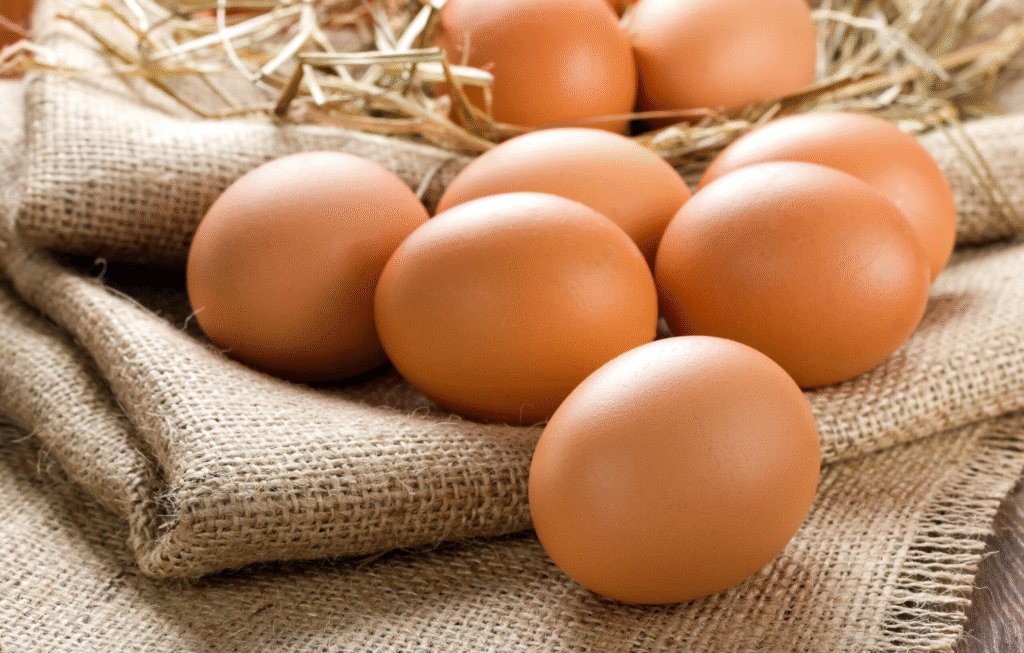
Eggs are cheap and can be prepared in series to provide grab-and-go snack-lunches for the week or for throwing together a powerful ingredient that you can lay for dinner.
9. Avocado
Avocado is accepted by virtually every diet, and do you know why? A very well one-over of healthy fats and fiber that fills you up, leading to the growth of a healthy microbiome. Plus, that soft, buttery texture does impart luscious flavor to all kinds of meals and snacks.
Women who ate one avocado daily combined with a reduced-calorie diet had significantly greater loss of visceral fat tissue than women following a reduced-calorie diet without avocados, said a 2021 report in The Journal of Nutrition.

So if you’re looking for ways to step up your avocado game beyond toast, consider whipping up other avo recipes to see how your day goes, such as Creamy Avocado Pasta, Mango & Avocado Salad, or Avocado Chicken Salad.
10 . Dark Chocolate
Dark chocolate is good for the brain and heart, and it may also help with weight loss. Yes? One truly sustainable weight loss diet plan that would really work is in a case where one does not deprive oneself. Another 2020 review in the Current Nutrition Report states that deprivation of a favorite food leads to craving for food.
And those cravings might morph to such an extent that one loses interest in weight loss, as there is always an accompanying sense of deprivation. If one enjoys their food—for example, some good old chocolate -they may be able to stay true to their journey to losing weight. A worthy coffee-table read, aim for one ounce of dark chocolate that is 70% cacao or higher for its finest antioxidant properties.
11. Beans
Beans and limits of the latter, which are naturally satiating, are largely in favor of weight loss. One 2012 study published in the Journal of the Academy of Nutrition and Dietetics found a considerable weight loss linked with increasing bean consumption.

Among various other benefits associated with beans and other legumes are the overall effects that lower blood pressure and cholesterol levels, LDL, and reduce the chances of contracting heart problems. Beans are low in calorie count and add to their protein ratio: try to put them in veggie burgers or in soups and salads.
Conclusion
By 1-2 lbs per week, any great weight loss has to find a clue in a balanced diet that provides sufficient protein, healthy fats, and fiber. These ten food items are indeed among the best and easiest to incorporate into the diet, so plan them into your meals and snacks and help to maintain your weight and provide your body with nutrients.
FAQs:
Which foods are best for natural weight loss?
Foods rich in protein, fiber, and healthy fats, like eggs, vegetables, and nuts, support natural, sustainable weight loss effectively.
Can eating fruits daily help with weight loss?
Yes, low-calorie, fiber-rich fruits like berries, apples, and oranges keep you full longer and aid in weight management.
How do high-protein foods support weight loss?
High-protein foods increase satiety, reduce cravings, boost metabolism, and preserve muscle mass during your weight loss journey.
Are whole grains better than refined carbs for weight loss?
Yes, whole grains digest slowly, provide lasting energy, reduce hunger, and prevent overeating compared to refined carbohydrates.
Can nuts help in weight loss despite being high in calories?
Yes, nuts contain healthy fats, protein, and fiber that promote fullness, helping control appetite and reduce overeating naturally.
SamhithaHealth & Wellness Content Writer
a Health & Wellness Content Writer with over 6 years of experience creating research-based health articles. She specializes in nutrition, weight management, diabetes care, skin health, and healthy lifestyle practices. Here content is carefully written using trusted medical and scientific sources to ensure accuracy and clarity for readers.

